The Vice-Chancellor, Professor John Vinney, has a new blog on the HEPI (the Higher Education policy Institute) website on research and teaching and how Stern and the TEF work together.
Brexit:
Research Professional note that: In oral answers to questions on 1 December “Robin Walker, the minister in charge of higher education in the Department for Exiting the European Union, told MPs that he has taken evidence from a number of organisations including Universities UK, the royal academies and the Russell Group on the implications of EU withdrawal for universities”. “The sector strongly supports our ambition to create an environment in which the UK as a whole can continue to be a world leader in research, science and the tertiary education sector,” he said. Research Professional also note that David Jones, another junior minister in the same department, added in a written answer that ministers “will aim to visit every sector and every region of the UK” to hear their views on EU withdrawal, as part of a wider approach to build “national consensus around our negotiating position”.
In another piece of welcome transitional news, the government has confirmed that EU students starting courses in 2017/18 can apply for Research Council Studentships, and funding will last for the whole of their courses.
Graduate outcomes:
The Department for Education have released data on graduate destinations from the Longitudinal Educations Outcome (LEO) dataset. This is made up of information from the National Pupil Database (NPD), the Individualised Learner Record (ILR), the Higher Education Statistics Agency (HESA), Her Majesty’s Revenue and Customs data (HMRC), The National Benefit Database, the Labour Market System and Juvos, the unemployment research database. This is different from the DLHE (Destination of Leavers in Higher Education) because it takes a much longer term view (DLHE is currently at 6 months after graduation).
The data released today is “experimental” and looks at the employment and earnings outcomes of those graduating with an undergraduate degree in 2008/09 from an English higher education institution (HEI). It looks at outcomes one, three and five years after graduation. Data are split by subject studied and graduate characteristic (sex, ethnicity, age, home region and prior attainment at A level). Employment outcomes are also provided for each HEI. (A further release is scheduled for spring 2017 covering outcomes by each subject for each institution.
There will be plenty of analysis and commentary to follow – UUK were very quick off the mark with a blog “Graduate earnings data is welcome but doesn’t tell full story” – noting that it doesn’t cover self-employed students (with a disproportionate effect on arts graduates) or those who are working abroad and do not separate part-time work or address regional variations. However, despite these limitations, the data will no doubt provides interesting context for the TEF amongst other things.
Schools:
The Ofsted 15/16 Annual Report outlines improved school judgements with ‘considerable’ benefits for children under age 11, however the North/South divide has widened. Concerns are expressed regarding the quality of technical and vocational education and training alongside ‘serious knowledge and skills gaps’ which threaten the competitiveness of the UK economy, further exacerbated by Brexit. This is interesting in the context of the schools consultation, which closes on 16th December – a Guardian article concludes that this is a complicated and risky area for universities.
Nursing degree apprenticeships:
A new nursing degree apprenticeship was announced on 30 November as part of the government commitment to create 100,000 apprenticeships within the NHS by 2020, and make up to 40,000 more nurses available to prevent rota gaps. The new nursing associate role will be hands on and expected to free up existing nurses to lead patient care decisions. Successful completion of the nursing associate apprenticeship can count towards a nursing degree and lead to registered nurse status.
The apprenticeship aims to open up a nursing career to people from all backgrounds, improving diversity within the workforce, through the earn whilst you learn model. The government envisages up to 1,000 nursing apprentices per year, starting from September 2017, with a flexible and progressive training model which accounts for previous qualifications and experience. The nursing apprenticeship standards are detailed here.
The Royal College of Nursing response is wary of creating a two-tier system, refers to the past where students were seen as ‘nursing on the cheap’ and stresses the importance of would-be nurses having a graduate level education to gain the knowledge and skills required for 21st century health care.
Government grant standards
The much criticised anti-lobbying clause was put on hold earlier this year (read more here) – and the government have today issued their new standards guidance for government grants. The new guidance confirms that researchers can communicating research and inform policy, including responding to consultations and select committee enquiries, and contributing expert scientific advice to inform government policy.
Teaching Excellence Framework
And finally – the Chair of the TEF panel, Chris Husbands (VC of Sheffield Hallam) has written on Wonkhe – busting 5 myths about TEF. The myths he is busting are:
- The TEF will push universities for widening participation
- The TEF is only about metrics
- The provider statement is all about explaining away the metrics (he’s like them to be celebratory)
- The TEF is biased and pre-ordained
- Student views do not count
For those of you interested in catching up on the TEF, Jane is running a workshop with Professor Debbie Holley from the Centre for Excellence in Learning on Friday 9th December
The latest list of committee inquiries is here. There is a new one on closing the STEM skills gap, and one on the role of education in mental health for young people – please contact policy@bournemouth.ac.uk if you want to respond to any of these.
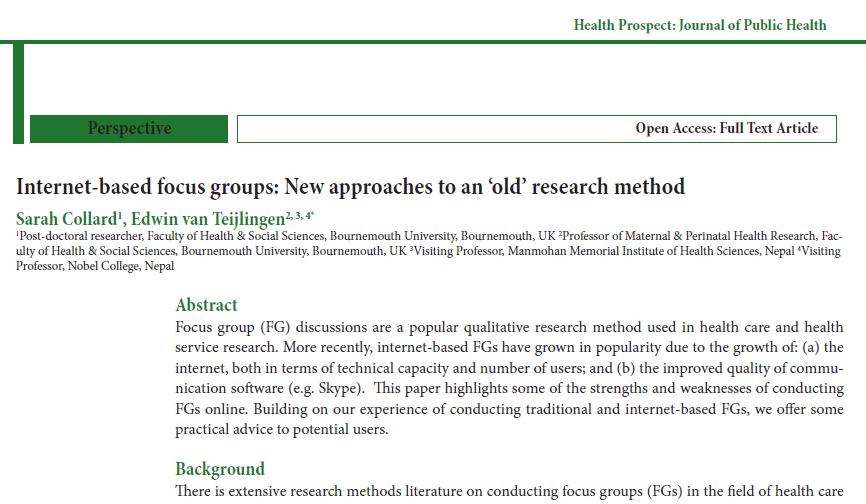 Today saw the publication of a new methods paper by Dr. Sarah Collard, post-doctoral researcher in the Faculty of Health & Social Sciences (FHSS) and Prof. Edwin van Teijlingen in the academic journal Health Prospect. This new paper addressed some of the key methodological issues associated with Internet-based Focus Groups (FGs) or the so-called Online Focus Group Discussions [1]. Traditional face-to-face FG discussions are a popular qualitative research method used a wide-range of areas, such as political sciences, marketing, health service research and sociology to name but a few disciplines. More recently, internet-based FGs have grown in popularity due to the growth of: (a) the internet, both in terms of technical capacity and number of users; and (b) the improved quality of communication software (e.g. Skype). This paper highlights some of the strengths and weaknesses of conducting FGs online. Building on our experience of conducting traditional and internet-based FGs.
Today saw the publication of a new methods paper by Dr. Sarah Collard, post-doctoral researcher in the Faculty of Health & Social Sciences (FHSS) and Prof. Edwin van Teijlingen in the academic journal Health Prospect. This new paper addressed some of the key methodological issues associated with Internet-based Focus Groups (FGs) or the so-called Online Focus Group Discussions [1]. Traditional face-to-face FG discussions are a popular qualitative research method used a wide-range of areas, such as political sciences, marketing, health service research and sociology to name but a few disciplines. More recently, internet-based FGs have grown in popularity due to the growth of: (a) the internet, both in terms of technical capacity and number of users; and (b) the improved quality of communication software (e.g. Skype). This paper highlights some of the strengths and weaknesses of conducting FGs online. Building on our experience of conducting traditional and internet-based FGs.
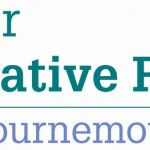
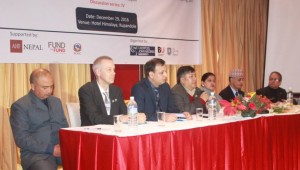
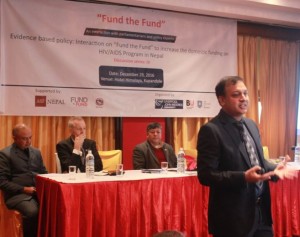

 The
The  For those of you who haven’t yet heard about the Research and Knowledge Exchange (
For those of you who haven’t yet heard about the Research and Knowledge Exchange (
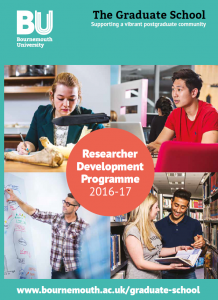
 How many acronyms can you fit in one title? The EPSRC are holding two two-day
How many acronyms can you fit in one title? The EPSRC are holding two two-day  Our informative “Coping with the new EU Landscape” 2 workshops will be taking place this Thursday the 29th of September in the Octagon on Talbot Campus at:
Our informative “Coping with the new EU Landscape” 2 workshops will be taking place this Thursday the 29th of September in the Octagon on Talbot Campus at:
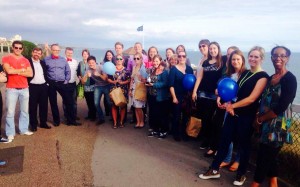

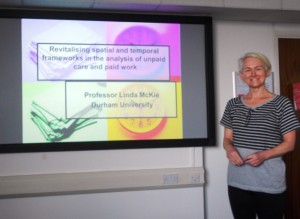













 Conversation article: Why so many people drown at the water’s edge
Conversation article: Why so many people drown at the water’s edge Workshop on longitudinal studies in three countries
Workshop on longitudinal studies in three countries New Bournemouth University public health paper
New Bournemouth University public health paper New ACORN-funded paper published. When time is short but passion for food is strong, food day-tripping may be the answer!
New ACORN-funded paper published. When time is short but passion for food is strong, food day-tripping may be the answer! Royal Society of Chemistry Outreach Fund: Open for Applications
Royal Society of Chemistry Outreach Fund: Open for Applications Last reminder – MSCA Postdoctoral Fellowships 2024 internal deadline next week
Last reminder – MSCA Postdoctoral Fellowships 2024 internal deadline next week Horizon Europe – EuroHPC and MSCA PF webinars
Horizon Europe – EuroHPC and MSCA PF webinars